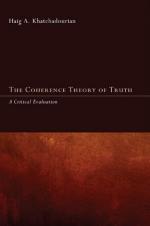|
This section contains 1,859 words (approx. 7 pages at 300 words per page) |

|
One of the three major views of the nature of epistemic justification, the coherence theory (or "coherentism") experienced a revival during the 1970s and 1980s after its near total eclipse earlier in the twentieth century. Although its origins can be traced to idealists, including Francis Bradley, Bernard Bosanquet, and Brand Blanshard, the coherence theory has more recently been espoused by empiricist-minded contemporary philosophers such as Wilfrid Sellars, Nicholas Rescher, Keith Lehrer, Gilbert Harman, and Laurence Bonjour. The coherence theory of justification stands as an alternative to both the more traditional foundations theory and the view called reliabilism. It should not be confused with a coherence theory of truth. A coherence theorist about justification can acknowledge a fact that cripples the coherence theory of truth, namely, that there are instances of coherent, hence justified, beliefs in falsehoods.
Although the details of different versions of the coherence theory vary widely...
|
This section contains 1,859 words (approx. 7 pages at 300 words per page) |

|


